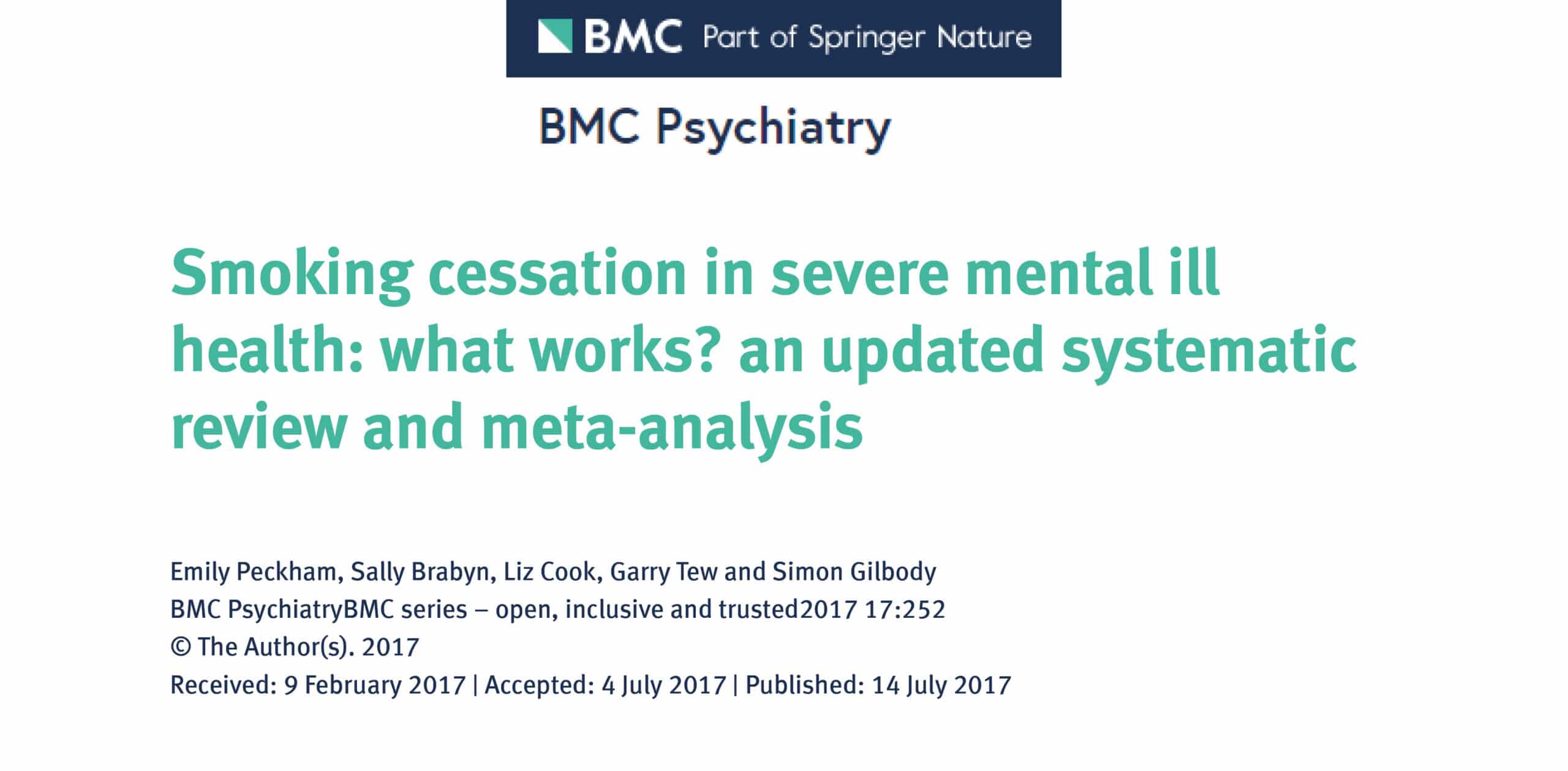Project Description
Background
People with severe mental ill health are more likely to smoke than those in the general population. It is therefore important that effective smoking cessation strategies are used to help people with severe mental ill health to stop smoking. This study aims to assess the effectiveness and cost –effectiveness of smoking cessation and reduction strategies in adults with severe mental ill health in both inpatient and outpatient settings
Study
This is an update of a previous systematic review. Electronic databases were searched during September 2016 for randomised controlled trials comparing smoking cessation interventions to each other, usual care, or placebo.
Findings
Bupropion and varenicline, which have been shown to be effective in the general population, also work for people with severe mental ill health and their use in patients with stable psychiatric conditions. Despite good evidence for the effectiveness of smoking cessation interventions for people with severe mental ill health, the percentage of people with severe mental ill health who smoke remains higher than that for the general population.
In addition to previous findings regarding the effectiveness of bupropion in helping people with SMI to quit smoking there is now trial based evidence to demonstrate that varenicline appears to be effective in helping people with SMI to quit smoking.

